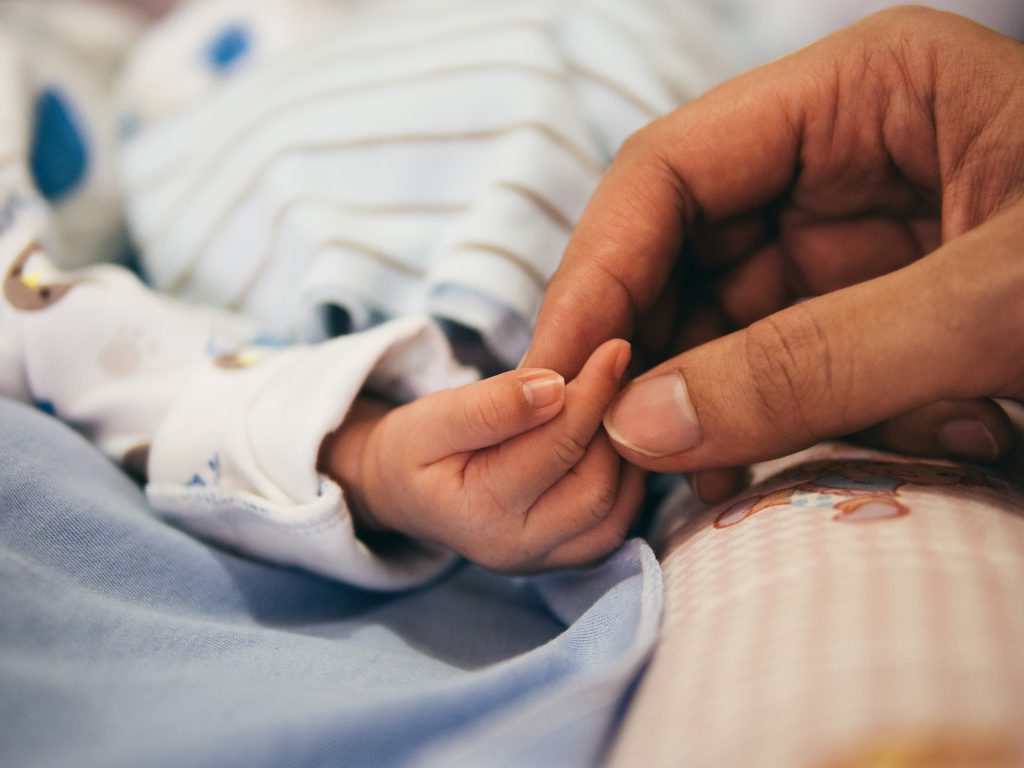
Published April 9, 2019
My teenage daughter recently developed a headache and fever bad enough for her to tell me: “Mom, I need to go to the emergency room. Please, take me now.” At the E.R. we learned that not only was she running a fever of 102, but her heart rate was well above what it should have been for a 15-year-old. “We’ll start an I.V.,” the nurse said. “Oh, and her swab just came back positive for Influenza A. You’re going to be here for a while.” My daughter began to cry; I held her hand as she lay on the gurney. As any parent knows, there is nothing worse than seeing your child in pain.
That particular fear—having to witness a suffering child—was repeatedly cited in the coverage of New York’s new abortion law, which permits elective terminations up until the moment of birth, as well as similar legislation in Illinois and other states. Much of this coverage was based on the assumption that late-term abortions involved dire medical conditions which would either be fatal to women who continued their pregnancies or result in the child being born with disabilities. One woman, a member of the abortion-access lobbying group Naral, wrote in USA Today about the “crystal clear” choice to have the procedure out of “the purest mercy” for her child. Late-term abortion was portrayed as a zero-sum game in which a mother had no other option but to abort.
This concern does not match the data on late-term abortions, which suggest that most are not done for reasons of maternal or fetal health. For example, in 2013 the Guttmacher Institute (which advocates for greater access to abortion) published a study by two University of California researcherswho concluded, “data suggest that most women seeking later terminations are not doing so for reasons of fetal anomaly or life endangerment.” More common reasons included the fear of raising a child alone, addiction problems and delays in seeking an abortion after discovering a pregnancy.
The idea that late-term abortions are sometimes the only way to spare children from a life of constant pain is also unsupported. Conspicuously absent from this debate, and even from the typical conversation between doctors and women receiving adverse prenatal diagnoses, is any mention of perinatal hospice and palliative care. Perinatal (which means “around the time of birth”) hospice care employs many of the principles of compassionate care that the standard, more well-known hospice provides for other patients with terminal illnesses: nutrition and hydration, comfort care, pain control, and time with family for bonding, prayer and expressions of love.
Perinatal hospice does not seek to hasten death. Rather, it “follows the child,” presenting a model of accompaniment for both the child and his or her parents. Physicians, nurses, social workers, chaplains and other trained professionals work to ensure that families are able to cherish the time they have with their child, however brief.
I was made aware of perinatal hospice when one of my friends discovered her unborn daughter had a rare form of anencephaly. Although she was strongly encouraged by doctors (pressured, actually) to end the pregnancy, she declined and asked for a cesarean section to give the baby the best possible chance of extended survival. Although she lived only six hours, Mary Bernadette was baptized, held, sung to and even taught a few words of Czech by her grandmother (so she would be ready to meet her relatives in heaven, grandma explained). She died peacefully and painlessly in her father’s arms, surrounded by her family.
A few days later, Mary Bernadette’s parents learned that her donated heart valves had been used to save the lives of two critically ill infants. This is not always possible for such infants, but to her parents that knowledge was a tremendous consolation.
Studies report that women who opt for perinatal hospice have far better outcomes, in both physical and mental health, than their counterparts, especially related to anxiety, depression and grief. Nebraska has recognized this and now requires health providers to provide information about perinatal hospice care to any “pregnant woman who finds out that her baby has a life-limiting condition and who chooses to continue her pregnancy.” In contrast to the narrative of a zero-sum gameof termination, which pits mother against child, perinatal hospice is a positive-sum game, one in which all participants benefit.
Beyond who wins or loses, perinatal hospice promotes the dignity of all, especially those who will travel with us for just a short time and go to wait for us until we can join them.
Mary Hallan FioRito is an attorney and the Cardinal Francis George Fellow at the Ethics and Public Policy Center in Washington, D.C., where she specializes in human life issues and issues related to women and the Catholic Church.












